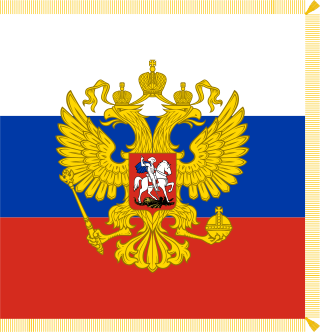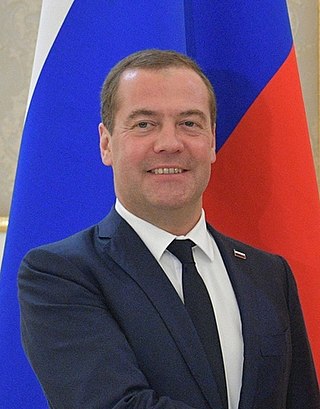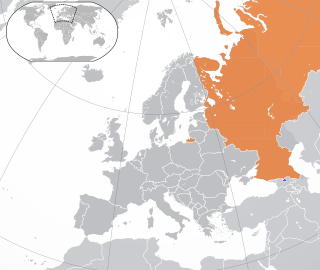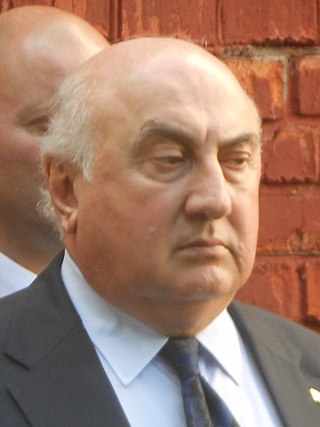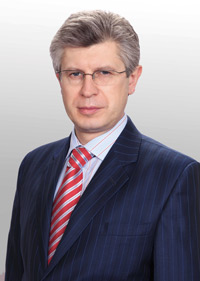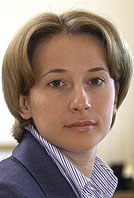| Candidate | Year of
birth | Place of employment | Position held |
|---|
| Akimov Konstantin Konstantin Vladimirovich Akimov | 1971 | Continental Management Timber Industrial Company | Chairman of the Board of Directors |
| Akimov Maxim Maxim Alekseyevich Akimov | 1970 | Kaluga Oblast Administration | Vice-Governor |
| Alexandrov Alexey Alexey Olegovich Alexandrov | 1960 | Government of Moscow | Prefect of Central Administrative Okrug of Moscow |
| Andreyev Fyodor Fyodor Borisovich Andreyev | 1966 | Russian Railways | Senior Vice-President |
| Antsev Georgy Georgy Vladimirovich Antsev | 1961 | Radar MMS | General-Director — Head Designer |
| Arutyunov Alexander Alexander Borisovich Arutyunov | 1971 | Intourist | President |
| Azarov Dmitry Dmitry Igoryevich Azarov | 1970 | Samara Oblast Government | Minister of Natural Resources and Environmental Protection |
| Barinov Igor Igor Vyacheslavovich Barinov | 1968 | State Duma | Deputy |
| Batkibekov Said Said Beletbekovich Batkibekov | 1977 | Troika Capital Partners Limited | Vice-President |
| Baumgertner Vladislav Vladislav Arturovich Baumgertner | 1972 | Uralkali | General-Director |
| Belozyorov Oleg Oleg Valentinovich Belozyorov | 1969 | Federal Highway Agency | Head |
| Bobrovnikov Boris Boris Leonidovich Bobrovnikov | 1960 | CROC Inc. | General-Director |
| Bokarev Andrey Andrey Removich Bokarev | 1966 | Kuzbassrazrezugol | Chairman of the Board of Directors |
| Borodin Pavel Pavel Andreyevich Borodin | 1971 | Federal Fund for the Assistance of Housing Development | Deputy General-Director |
| Brovko Anatoly Anatoly Grigoriyevich Brovko | 1966 | Vologda Oblast Administration | Deputy Head of the Administration of Investment and Trade |
| Budargin Oleg Oleg Mikhailovich Budargin | 1960 | Plenipotentiary Representative of the Russian President in the Siberian Federal District | Assistant to the Plenipotentiary Representative |
| Bulygin Alexander Alexander Stanislavovich Bulygin | 1968 | United Company RUSAL | Chairman of the Board — General-Director |
| Burenin Andrey Andrey Viktorovich Burenin | 1974 | Renova Management AG | Finance Director |
| Chinilin Pavel Pavel Yuryevich Chinilin | 1971 | Office of the Russian Federation Government | Department Deputy Director |
| Grigoriyev Alexander Alexander Valeriyevich Grigoriyev | 1963 | Ingosstrakh | Chairman of the Board — General-Director |
| Denisenko Oleg Oleg Ivanovich Denisenko | 1962 | State Duma | Deputy |
| Dergunova Olga Olga Konstantinovna Dergunova | 1965 | VTB Bank | Member of the Board of Directors |
| Dubinsky Andrey Andrey Yuriyevich Dubinsky | 1960 | BDO Unicon | General-Director |
| Dyakova Yelena Yelena Grigoriyevna Dyakova | 1965 | Public Chamber of Russia - Institute of Philosophy and Law of the Urals Division of the Russian Academy of Sciences | Chief Research Officer |
| Fomichyov Oleg Oleg Vladislavovich Fomichyov | 1977 | Ministry of Economic Development and Trade | Department Director |
| Gaplikov Sergey Sergey Anatoliyevich Gaplikov | 1970 | Cabinet of Ministers of the Chuvash Republic | Chairman of the Cabinet of Ministers |
| Gayzer Vyacheslav Vyacheslav Mikhailovich Gayzer | 1966 | Komi Republic Government | Deputy Head of the Republic — Minister of Finance |
| Goncharov Vladimir Vladimir Aleksandrovich Goncharov | 1972 | Federal Registration Service | Head of the Administration in Rostov Oblast |
| Gorbachik Tatyana Tatyana Vladimirovna Gorbachik | 1970 | Ministry of Transport | Department Director |
| Guriyev Sergey Sergey Maratovich Guriyev | 1971 | New Economic School | Rector |
| Ilyinykh Sergey Sergey Yevgeniyevich Ilyinykh | 1975 | Tomsk Oblast Administration | Deputy Governor for Social Policy |
| Ismagilov Rashid Rashid Faatovich Ismagilov | 1960 | Leningrad Oblast Administration | Vice-Governor |
| Ivlev Alexander Alexander Vladimirovich Ivlev | 1967 | Ernst & Young | Partner — Council of Directors of the company in the CIS |
| Izosimov Alexander Alexander Vadimovich Izosimov | 1964 | VimpelCom | General-Director |
| Izotova Anna Anna Vladimirovna Izotova | 1976 | Federal Tariff Service | Head of Department |
| Karavayev Igor Igor Yevgeniyevich Karavayev | 1968 | Ministry of Industry and Trade | Department Director |
| Khasis Lev Lev Aronovich Khasis | 1966 | X5 Retail Group | Chief Executive Officer — Chairman of the Board |
| Kibovsky Alexander Alexander Vladimirovich Kibovsky | 1973 | Federal Supervision Service for Compliance with the Law in Mass Communications and Cultural Heritage Protection | Head |
| Kosachyov Konstantin Konstantin Iosifovich Kosachyov | 1962 | State Duma | Committee Chairman |
| Kovalchuk Boris Boris Yuriyevich Kovalchuk | 1977 | Office of the Russian Federation Government | Department Director |
| Kozitsin Andrey Andrey Anatoliyevich Kozitsin | 1960 | Ural Mining and Metallurgical Company | General-Director |
| Kulagin Dmitry Dmitry Vladimirovich Kulagin | 1968 | Legislative Assembly of Orenburg Oblast | Chairman |
| Kulichenko Vadim Vadim Petrovich Kulichenko | 1973 | Samara Oblast Government | Vice-Chairman — Minister of Health and Social Development |
| Kurbatov Mikhail Mikhail Yuriyevich Kurbatov | 1981 | Ministry of Economic Development and Trade | Department Director |
| Kuvshinnikov Oleg Oleg Aleksandrovich Kuvshinnikov | 1965 | Mayor of Cherepovets | Mayor |
| Kuyvashev Yevgeny Yevgeny Vladimirovich Kuyvashev | 1971 | Mayor of Tyumen | Mayor |
| Livanov Dmitry Dmitry Viktorovich Livanov | 1967 | Moscow Institute of Steel and Alloys | Rector |
| Miskevich Yevgeny Yevgeny Vasiliyevich Miskevich | 1978 | Tyumen Oblast Government | Head of the Main Department for Construction |
| Manturov Denis Denis Valentinovich Manturov | 1969 | Ministry of Industry and Trade | Deputy Minister |
| Matishov Dmitry Dmitry Gennadiyevich Matishov | 1966 | Southern Scientific Centre of the Russian Academy of Sciences - Southern Federal University | Vice-Chairman — Head of Oceanology Department |
| Matveyeva Yelena Yelena Yuriyevna Matveyeva | 1966 | Kaliningrad Oblast Government | Minister of Finance |
| Mednikov Dmitry Dmitry Yuriyevich Mednikov | 1980 | Head Office of "Russian Information Superhighway" | Editor-in-Chief |
| Melamed Leonid Leonid Adolfovich Melamed | 1967 | AFK Sistema | President |
| Menshchikov Vladislav Vladislav Vladimirovich Menshchikov | 1959 | Almaz-Antey | General-Director |
| Meshcheryakov Terenty Terenty Vladimirovich Meshcheryakov | 1974 | Legislative Assembly of Saint Petersburg | Deputy |
| Metshin Ilsur Ilsur Raysovich Metshin | 1969 | Kazan City Administration | Mayor |
| Minkh Garry Garry Vladimirovich Minkh | 1959 | Office of the Russian Federation Government | Legal Department Director |
| Mironyuk Svetlana Svetlana Vasiliyevna Mironyuk | 1968 | RIA Novosti | Editor-in-Chief |
| Mishustin Mikhail Mikhail Vladimirovich Mishustin | 1966 | UFG Asset Management | President |
| Moskalenko Alexey Alexey Anatoliyevich Moskalenko | 1981 | LLK International | Deputy Department Head for Legal Groundwork |
| Naumov Stanislav Stanislav Aleksandrovich Naumov | 1972 | Ministry of Industry and Trade | State Secretary — Deputy Minister |
| Nazarov VladimirVladimir Stanislavovich Nazarov | 1982 | Institute for the Economy in Transition | Laboratory Chief of Federal Spending |
| Neterebsky Oleg Oleg Viktorovich Neterebsky | 1960 | Moscow City Government | Head of the Department of Work and Employment |
| Nikiforov Nikolay Nikolay Anatoliyevich Nikiforov | 1982 | Centre of Information Technology of the Republic of Tatarstan | General-Director |
| Noskov Konstantin Konstantin Yuriyevich Noskov | 1978 | Office of the Russian Federation Government | Department Deputy Director |
| Novak Alexander Alexander Valentinovich Novak | 1971 | Ministry of Finance | Deputy Minister |
| Pepelyayeva Ilana Ilana Vitaliyevna Pepelyayeva | 1965 | State Duma | Deputy Chairman of the Financial Markets Committee |
| Pertsovsky Alexander Alexander Naumovich Pertsovsky | 1968 | Renaissance Capital | Chairman of the Board |
| Pleshakova Olga Olga Alexandrovna Pleshakova | 1966 | Transaero | General-Director |
| Popova Tatyana Tatyana Yuriyevna Popova | 1972 | State Corporation "Assistance Fund for Housing and Public Utilities" | Deputy General-Director — Chief of Staff |
| Rakova Anastasiya Anastasiya Vladimirovna Rakova | 1976 | Ministry of Regional Development | Deputy Minister — State Secretary |
| Rashevsky Vladimir Vladimir Valeriyevich Rashevsky | 1973 | Siberian Coal Energy Company | General-Director — Chairman of the Board |
| Redin Yevgeny Yevgeny Vladimirovich Redin | 1969 | Legislative Assembly of Chelyabinsk Oblast | First Deputy Chairman |
| Reshetnikov Maxim Maxim Gennadiyevich Reshetnikov | 1979 | Ministry of Regional Development | Department Director |
| Shakhov Oleg Oleg Fedorovich Shakhov | 1969 | Strategy Centre | Vice-President |
| Savatyugin Alexey Alexey Lvovich Savatyugin | 1970 | Ministry of Finance | Department Director |
| Savelyev Oleg Oleg Genrikhovich Savelyev | 1965 | Ministry of Economic Development and Trade | Deputy Minister |
| Shadayev Maksut Maksut Igoryevich Shadayev | 1979 | Presidential Administration | Assistant Director |
| Sharov Andrey Andrey Vladimirovich Sharov | 1971 | Ministry of Economic Development and Trade | Department Director |
| Slepnyov Andrey Andrey Aleksandrovich Slepnyov | 1969 | Ministry of Agriculture | Deputy Minister |
| Sokolov Maxim Maxim Yuriyevich Sokolov | 1968 | Saint Petersburg Government | Chairman of the Committee for Investment and Strategic Projects |
| Svatkovsky Dmitry Dmitry Valeriyevich Svatkovsky | 1971 | Nizhniy Novgorod Oblast Government | Minister of Investment Policy |
| Sukhikh Valery Valery Aleksandrovich Sukhikh | 1965 | Perm Krai Government | Chairman of the Government |
| Tokarev Vladimir Vladimir Aleksandrovich Tokarev | 1977 | Federal Railway Transport Agency | Deputy Director |
| Travnikov Maxim Maxim Aleksandrovich Travnikov | 1974 | Ministry of Regional Development | Deputy Minister |
| Trunin Ilya Ilya Vyacheslavovich Trunin | 1976 | Ministry of Finance | Department Director |
| Turchak Andrey Andrey Anatoliyevich Turchak | 1975 | Federation Council | Deputy Chairman of the Federal Council Committee on Youth Affairs and Tourism |
| Urlichich Yury Yury Matevich Urlichich | 1962 | Russian Institute of Space Device Engineering | General-Director — General Designer |
| Velmyaykin Sergey Sergey Fyodorovich Velmyaykin | 1978 | Ministry of Health and Social Development | Department Director |
| Verbitsky Vladimir Vladimir Konstantinovich Verbitsky | 1959 | Russian Institute of Directors | First Deputy Director |
| Volkov AndreyAndrey Yevgeniyevich Volkov | 1960 | Moscow School of Management Skolkovo | Rector |
| Volozh Arkady Arkady Yuriyevich Volozh | 1964 | Yandex | General-Director |
| Voskresensky Stanislav Stanislav Sergeyevich Voskresensky | 1976 | Ministry of Economic Development and Trade | Deputy Minister |
| Vovchenko Alexey Alexey Vitaliyevich Vovchenko | 1975 | Federal Service for Employment and Labor Relations | Deputy Head |
| Yarin Andrey Andrey Veniaminovich Yarin | 1970 | Kabardino-Balkar Republic Government | Chairman of the Government |
| Yudayeva Kseniya Kseniya Valentinovna Yudayeva | 1970 | Sberbank | Chief Economist |
| Yurev Yevgeny Yevgeny Leonidovich Yurev | 1971 | ATON Investment Group | President |
| Zadornov Mikhail Mikhail Mikhailovich Zadornov | 1963 | VTB24 | President — Chairman of the Board |
| Zhukov Andrey Andrey Viktorovich Zhukov | 1971 | Ministry of Transport | Chief of the North-Western Interregional State Administration of Highway Inspection |
| Zubkov Igor Igor Valeriyevich Zubkov | 1970 | Plenipotentiary Representative of the Russian President in the Central Federal District | Assistant to the Plenipotentiary Representative |

